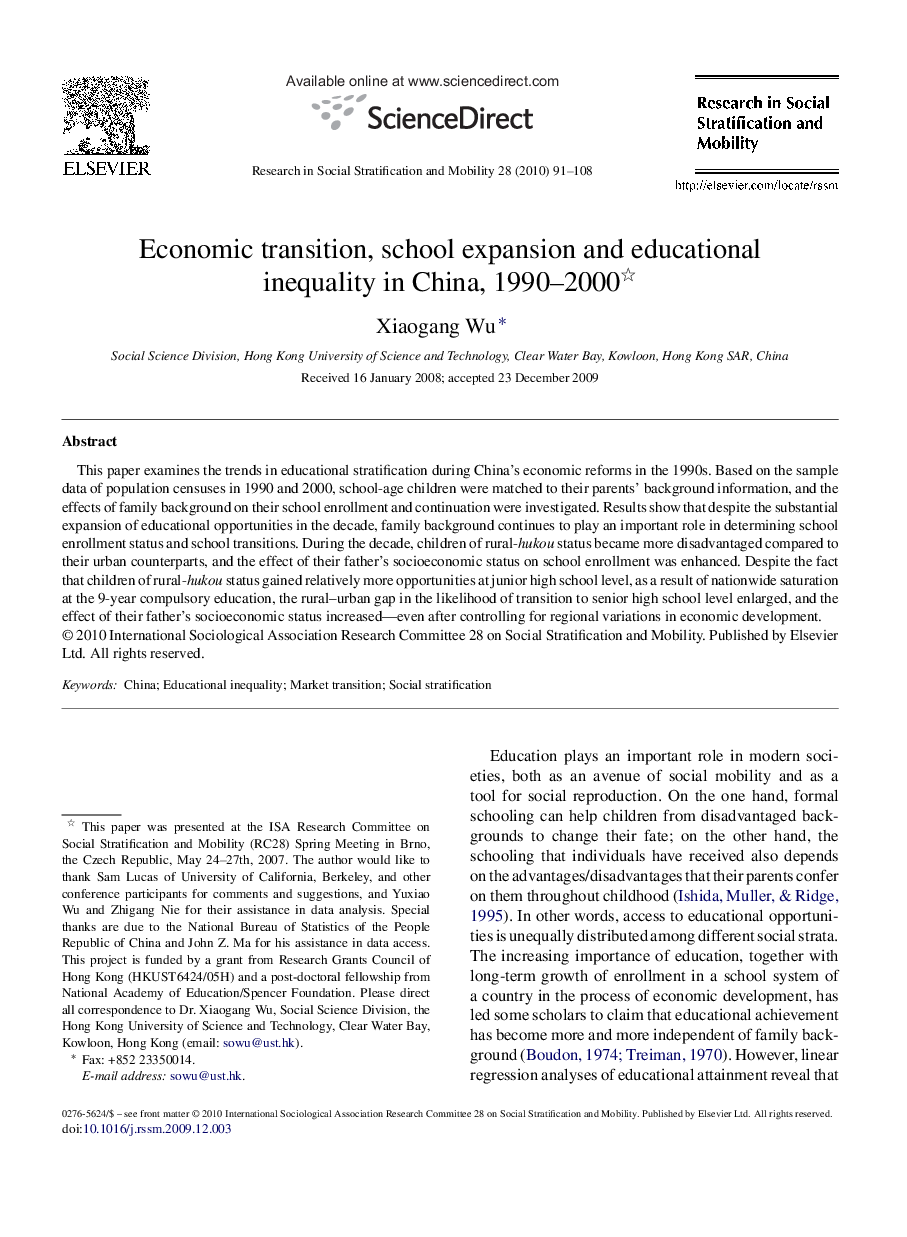| Article ID | Journal | Published Year | Pages | File Type |
|---|---|---|---|---|
| 999679 | Research in Social Stratification and Mobility | 2010 | 18 Pages |
This paper examines the trends in educational stratification during China's economic reforms in the 1990s. Based on the sample data of population censuses in 1990 and 2000, school-age children were matched to their parents’ background information, and the effects of family background on their school enrollment and continuation were investigated. Results show that despite the substantial expansion of educational opportunities in the decade, family background continues to play an important role in determining school enrollment status and school transitions. During the decade, children of rural-hukou status became more disadvantaged compared to their urban counterparts, and the effect of their father's socioeconomic status on school enrollment was enhanced. Despite the fact that children of rural-hukou status gained relatively more opportunities at junior high school level, as a result of nationwide saturation at the 9-year compulsory education, the rural–urban gap in the likelihood of transition to senior high school level enlarged, and the effect of their father's socioeconomic status increased—even after controlling for regional variations in economic development.
